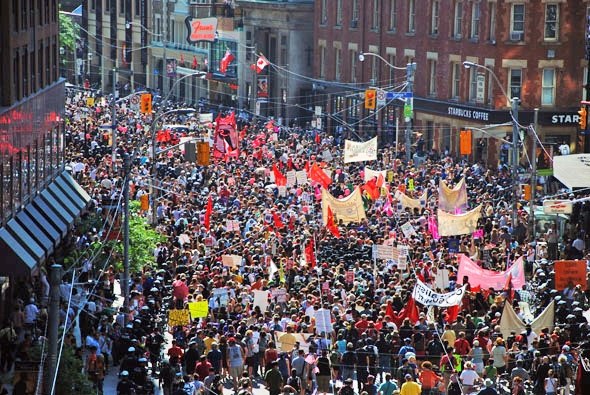
Kiraz Janicke's "Burqa Revolution".
Green Left Weekly -- On September 23, the Daily Telegraph reported on a wall mural in the Sydney inner-west suburb of Newtown by artist Sergio Redegalli with the slogan “Say no to burqas”. Redegalli’s mural has sparked protests by local residents who have condemned it as racist. Sydney Socialist Alliance activist Kiraz Janicke says Redegalli’s piece “has no other value than to promote racism”. She has responded with an artwork of her own — a submission to the Live Red Art Awards, titled “Burqa revolution”.
Below, Janicke argues that banning the burqa (a veil covering the entire body, with a mesh over the eyes), or other forms of Islamic dress worn by some Muslim women that cover the face, will hinder true women’s liberation.
* * *







